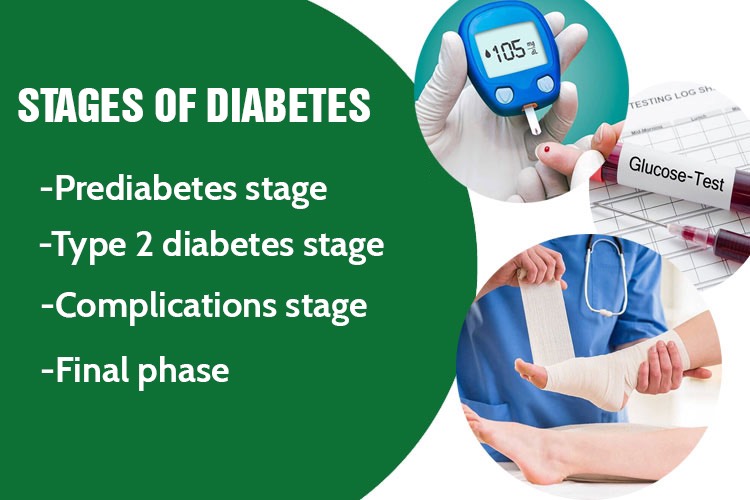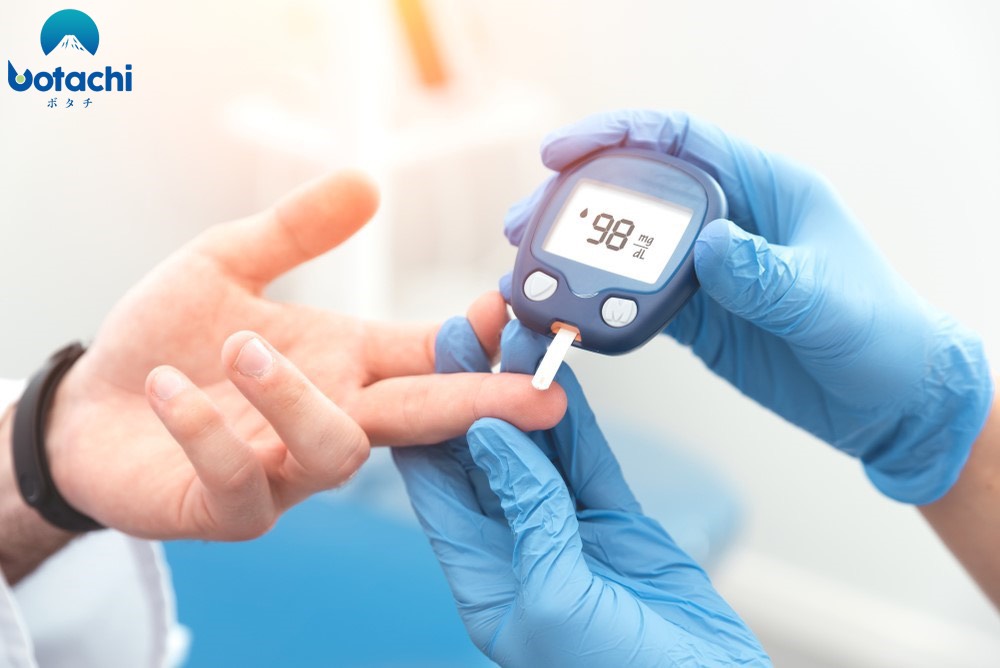Stages of diabetes
Stages of diabetes - Which stage is the most dangerous? It is a complex disease with many dangerous complications. Patients need to learn carefully to be able to treat it as well as provide enough nutrients for each stage. So, during the stage of diabetes…
Stages of diabetes - Which stage is the most dangerous?
It is a complex disease with many dangerous complications. Patients need to learn carefully to be able to treat it as well as provide enough nutrients for each stage. So in the stages of diabetes, what stages do patients need to pay attention to to prevent bad conditions?

Stage 1 (Prediabetes)
During this stage, the patient's blood sugar level will be higher than normal people but not to the level to be diagnosed with diabetes. The patient's blood sugar index during the fasting period will be about 5.6-6.9 mmol/l (normal people are under 5.6 mmol/l), when full it will be 7.8-11 mmol/l (normal people normal is less than 7.8 mmol). /l).
Symptoms in the early stages of diabetes are unclear, making it difficult for patients to detect and treat promptly. The duration of the disease is 3-5 years. Therefore, when you feel that your body is always tired, often hungry, has impaired vision, has many dark spots on the skin such as in the armpits, between fingers and legs, frequent urination, insomnia, then come quickly. hospital. to check your status.
If treated well in the pre-diabetes stage, the patient will have a high cure rate and will not develop the disease to stage 2. Encourage people who are overweight, obese, or have high blood pressure to develop the disease. If you have diabetes, you should check your blood sugar regularly
Stage 2 (Advanced diabetes)
Entering the next stage, the condition will become more severe. Persistent high blood sugar levels are caused by a lack of insulin production. At this stage, the patient's blood sugar level will likely increase to 7 mmol/l when fasting.
To regulate blood sugar levels at this stage, patients must change their lifestyle to be more scientific, minimize foods high in carbohydrates and starch, and especially need medical intervention to stabilize blood sugar levels. and ensure health.
Stage 3 (Diabetes that is difficult to control)
Without carefully understanding the stages of diabetes, patients will not be able to know the symptoms of the first two stages. When the disease is detected in stage 3, it is very difficult to treat because at this point the pancreas is truly exhausted, causing blood sugar levels to increase.
According to endocrine experts, during this period, kidney, cardiovascular, eye, and neurological complications occur a lot. Therefore, treatment will not only stop at using hypoglycemic drugs but also improve the complications encountered.

Stage 4 (Final Stage)
Entering the most severe stage of diabetes. Patients may face many life-threatening dangers such as:
- Heart failure: vascular complications leading to atherosclerosis due to high contraction frequency. Over time, it will cause difficulty breathing and even death from a heart attack.
- Kidney failure: high blood sugar will destroy the entire system of small blood vessels in the kidneys. No longer able to filter toxins and must have an artificial kidney transplant to maintain life
- Stomach complications: the patient cannot absorb food on their own and must have a support tube placed in the stomach.
Advice to help regulate blood sugar levels effectively and reduce the speed at which stages of diabetes develop
Blood sugar control depends entirely on diet and exercise:
- Increase exercise: exercising 30 - 45 minutes a day will help the body have better resistance as well as maintain weight at an appropriate number.
- Minimize the amount of carbohydrates and starch: Gradually reduce the amount of starch and sugar into the body with a scientific, nutritious menu to best control sugar levels.
- Increase the absorption of fiber-rich foods: supplementing green vegetables is the perfect choice for people with diabetes. In addition to having many necessary nutrients for the body, it also helps regulate blood sugar levels in stages 1 and 2 very well.
- Limit the use of packaged foods: packaged foods contain quite high sugar content and are not good for the patient's body.
- Use medicine as prescribed by your doctor: medicine is also a functional food that helps control sugar levels and helps stabilize the patient's health.
- Supplement other nutrients such as dietary supplements for diabetics: to ensure health as well as necessary substances for patients, they should absorb foods such as BOTACHI

To best treat the disease, listen to your doctor's advice and refer to the article above to better understand the stages of diabetes.
